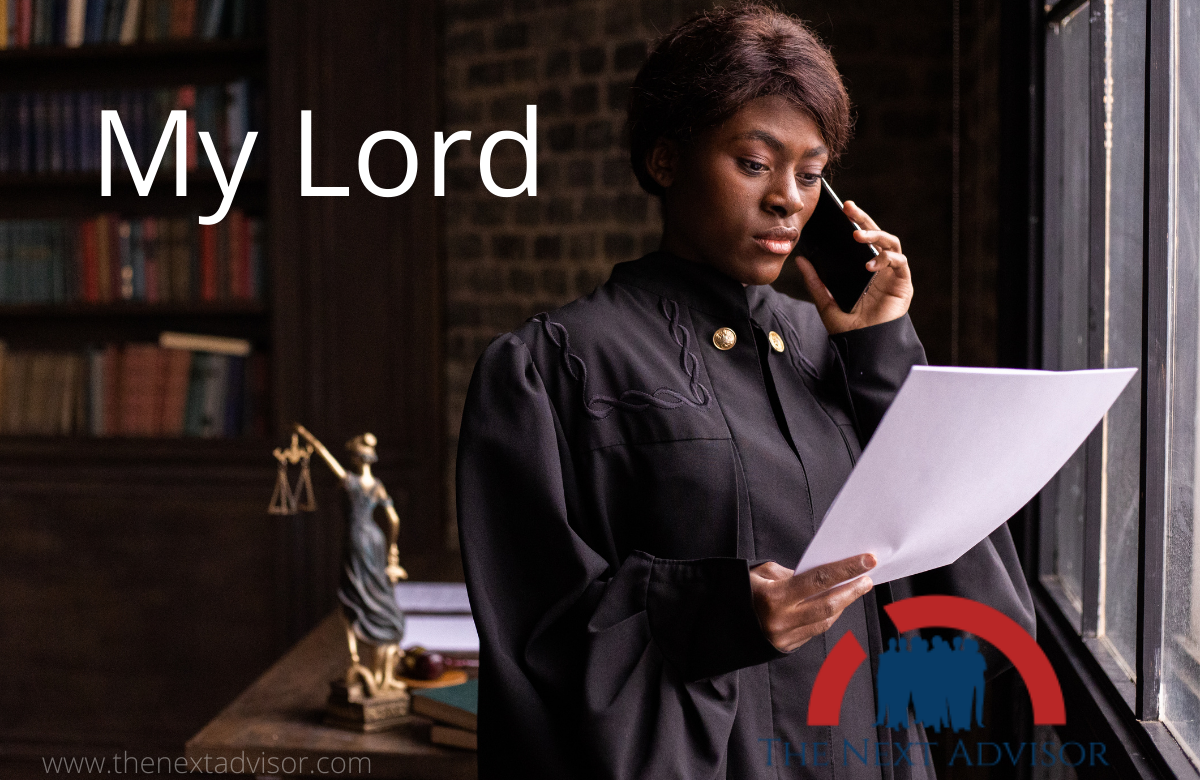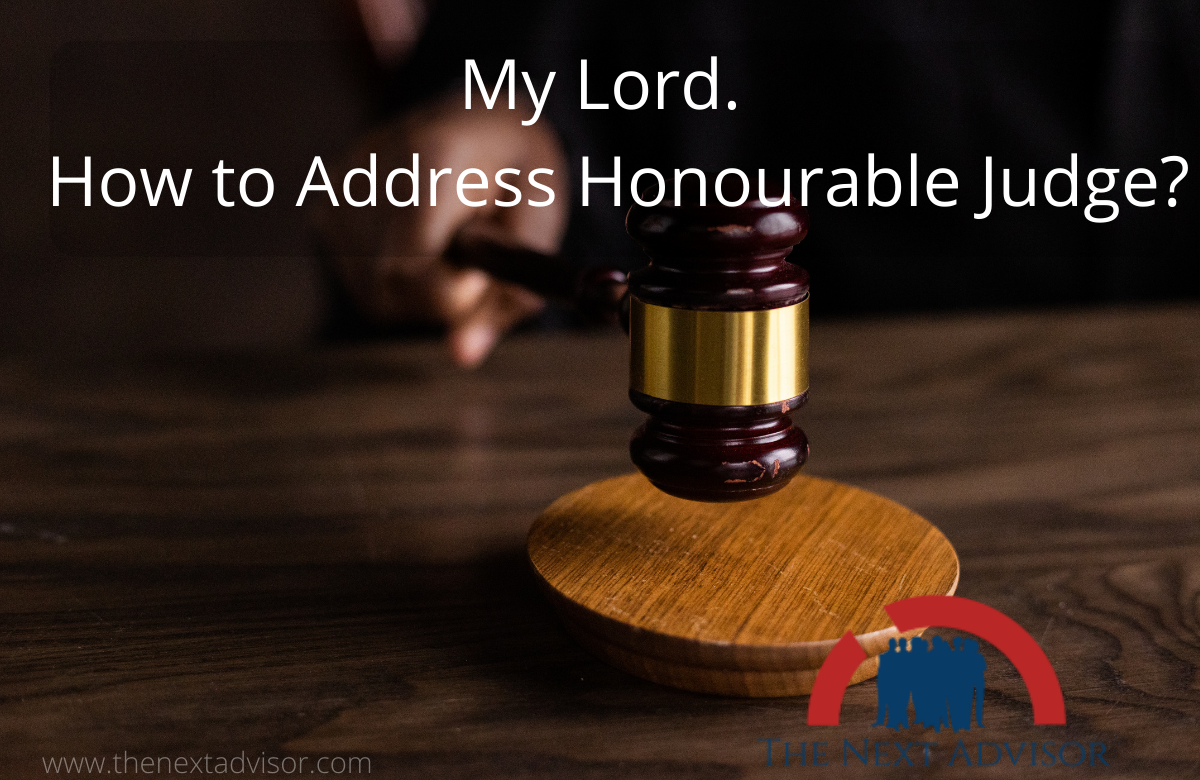Many law students have a question in their mind that How do they have to Address a Judge in the Court? and many advocates, who started their new practice as an advocate Have a question in their mind, “Is it right to address a Judge by saying My Lord or Not?” Let us see the answer to this question after which you will not have any questions about this How you should address the Honorable Judge in the Court?
All of you must have heard this word, My Lord, in movies or in serious or in Court. There is a common movement between the Supreme Court and other Courts. But first, we will see the answers that why we say,” My Lord” in the Court while addressing to the Honorable Judge? Let us understand about a salutation.
Salutation:-
Salutation means when you meet someone at that time how do you address them like Sir, Mam, Madam, Mr, Ms is called Salutation. Now imagine How you would address the Judge in the Court and what would you be calling to Judge?
According to all the movies we have seen, the answer should be My Lord, Mi Lord, Your Honor. But where can you find the right answer? We can find the answer to this question in Section 49 of the Advocates Act. Advocates Act gives power to the Bar Council of India to make rules, Like when can become a member of Bar Council, when can be disqualified from Bar Council. What is the education required to become a member of the Bar Council? Like when can become a member of Bar Council, when can be disqualified from Bar Council. What is the education required to become a member of the Bar Council? And what conduct will the advocate have to follow? etc…
Let us see what’s happening in the Court?
Before some days, the Judge of Karnataka High Court Honorable Justice P.Krishna Bhat requested advocates to avoid addressing court with ‘My Lord’ or ‘Your Lordship’. And instead, use a word that is correct according to the Indian condition like just saying sir will suffice. A few days before this, the Judge of Punjab and Haryana High Court requested before the members of Bar Council to avoid saying ‘Your Lordship’, ‘My Lord’, ‘Obliges’ and ‘Grateful’.

My Lord, My Lordship
In fact, a few days ago, during the hearing of a case in the Supreme Court, a law student addressed the judge by saying, Your Honor. Honorable Ex CJI S.A. Bobde objected to this. He said that it is the practice of the US Supreme Court to say, Your Honor. This is not the practice of the Indian Court. Hearing this, the law student apologized and addressed the judges instead of the youth saying Your Lord. But By using this term also the Judges were not Satisfied.
Do you know? To remove this confusion, Advocate Sagar Tiwari had filed a petition in the Supreme Court in 2014. Saying that Use of ‘My Lord’ and ‘Your Lordship’ is not only avoidable relics of the COlonial past but also symbolises slavery and is contrary to Indian culture and dignity. This meaning is these terms should not be used because these are the terms, we used to address the Judges at the time of slavery, and at today’s time, it would not be the right word to use these words in independent India. The case by hearing by CJI S.L. Dattu and S.A.Bobde was with him. By rejecting this PIL, he said in the Judgment that, it is not compulsory to use these words. It is not compulsory. You can address the Judges in the court by any respectful term, just like you can address them ‘Your Honor’, ‘Sir’ or you can address them ‘My Lord’. Using these words is not compulsory and he rejected this saying that you can address judges by any respectful terms.
Even before this, the Advocates in the High Court of the different states like Madras High Court, Calcutta High Court, Rajasthan High Court, etc, have the objection directly or have requested the Bar Council not to address them with words like, ‘My Lord’, ‘Your Lordship’.
On 2006, the Bar Council of India published its resolution in the Gazette of India which read:
-
Supreme Court and High Courts: “ Your Honor” or ” Honourable Court“.
- Subordinate Courts and Tribunals: “Sir” or equivalent word in respective regional languages.
They used to say that in order to maintain respect and dignity towards the court, he will address by saying, your honor. Supreme Court and driver can address its users by saver or any other equivalent words. And the region did not come for it given that words like my lord are words used in British rule and colonial rules in India,
But now more respectful words should be used in their place. So where and what to speak or address?. You will find (where and what to speak or address?) it in BCI Rules, Part VI, Chapter 3A. So where to say what or how to address whom, you can find it in the rules.

























